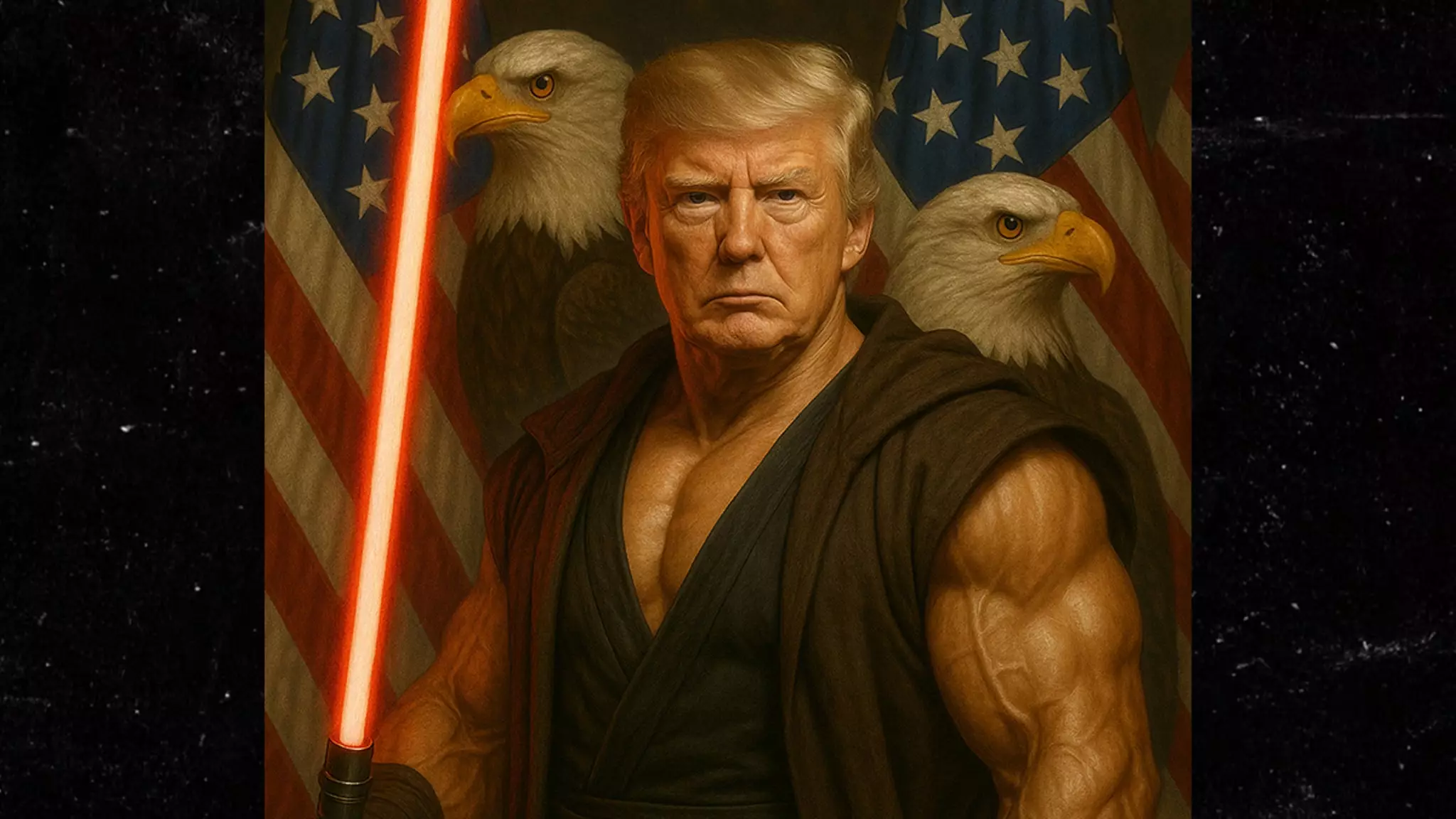This year, the intersection of political theatrics and pop culture saw an extraordinary twist as the White House decided to celebrate Star Wars Day. By releasing an AI-generated image of President Donald Trump dressed in fantastical Star Wars attire, complete with the dark imagery of a Sith Lord, the administration sparked significant conversations about the implications of such a portrayal. The choice to depict Trump as a behemoth figure with a lightsaber—particularly a red one—raises critical questions about the authenticity and intent behind this depiction in the age of political polarization.
Dark Symbolism
In the realm of Star Wars, the red lightsaber is emblematic of the Sith, the antagonists who wield the power of the Dark Side. This portrayal is not merely innocent fun; it resonates deeply with historical and socio-political undertones that align with authoritarianism and brutality. George Lucas, the creator of Star Wars, drew on real-world totalitarian regimes when crafting the Imperial aesthetic—a sobering thought that some might overlook in the light-hearted context of May the 4th. Trump’s association with the Sith symbolizes a departure from traditional values espoused by Democracy and justice, leading his detractors to echo concerns about burgeoning authoritarian impulses within his governance.
Polarizing Public Perceptions
The political landscape in America has fostered an environment ripe for divisive interpretations. The image’s reception ranged from scorn among those who recognize Trump’s administration as straying dangerously towards authoritarianism to support from followers who seem to embrace the symbolism as heroic rather than villainous. Nevertheless, the White House’s communication strategy—which included a message that framed left-wing activists as the true embodiments of the Empire—further complicates how imagery can be weaponized in the current zeitgeist of American politics. The callous association between radicalism and the fundamental tenets of the Empire is a stark reminder of how propaganda can reshape narratives.
The Absurdity of Political Theatre
In our age of rapid information exchange, the absurdity of political theater has reached new heights, with the Trump administration keenly aware of its impact. This Star Wars Day stunt is indicative of a strategy designed to maintain a strong, almost mythical, presence in the public eye. However, in an effort to secure loyalty from a fragmented base, such attempts often overlook the genuine implications of grandiosity in governance. The image of Trump as a Sith Lord, whether intentional or not, invites discussions about his firm grasp on power and the moral implications of legacy-building through artificial imagery.
A Call for Reflection
Amid the fanfare and fury surrounding this political portrayal, it becomes necessary to question not just the intent but the consequences of such a representation. It beckons reflection on the state of democracy, the true role of leadership, and the values that a society seeks to uphold. As fans of Star Wars and global citizens engage in deciphering this blend of entertainment and serious political commentary, one must ponder if the Force is truly with us or if we are merely spectators at a beautifully crafted yet disconcerting political play.

